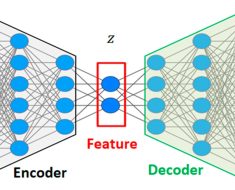Exploring the Path to Artificial General Intelligence
The concept of Artificial General Intelligence (AGI) has sparked a revolution in technological advancements. AGI, a form of artificial intelligence, possesses the cognitive capabilities comparable to a human’s ability to understand, learn, adapt, and implement knowledge in a wide range of tasks. The potential for its rapid development is reshaping our expectations for the future of technology, particularly in fields like healthcare, business, and automation.
Artificial Intelligence: From Narrow to General
Artificial Intelligence (AI) comes in various forms, each with its own degree of capability and scope. At one end of the spectrum, we have Artificial Narrow Intelligence (ANI), which is designed to execute specific tasks such as voice recognition or image analysis. At the other end, there’s Artificial General Intelligence (AGI), which is expected to comprehensively perform any intellectual task that a human can do. The concept of AI singularity – the point at which AGI surpasses human intelligence – is predicted by some experts to occur as early as 2030.
Accelerating Technological Advancements
Significant strides in technological advancements are propelling us towards AGI at an unprecedented rate. Large Language Models (LLMs) like GPT-3 have played a crucial role in this acceleration. These models are capable of generating human-like text, demonstrating an advanced level of understanding and responsiveness. This degree of sophistication in AI technology is contributing to the steep decline in the expected years until AGI’s emergence.
AGI and Healthcare
In the healthcare sector, the potential impact of AGI is enormous. By leveraging the comprehensive learning and problem-solving abilities of AGI, healthcare providers could significantly enhance diagnosis accuracy, treatment planning, and patient care. The use of AGI could lead to more personalized medicine, improved patient outcomes, and increased efficiency in healthcare delivery.
Introducing Baby AGI
The concept of Baby AGI is an intriguing development in the AI field. It explores the creation of autonomous AI systems that possess advanced cognitive abilities. Although not true AGI, Baby AGI is designed to explore fundamental components of intelligence such as goal setting, planning, and decision-making. This approach is considered a stepping stone to AGI and holds promise for applications in automation, robotics, scientific research, education, and creative expression.
Ethical Considerations in the AGI Landscape
While AGI presents exciting possibilities, it also raises important ethical and moral considerations. Issues of bias, transparency, accountability, and potential misuse of AI technology are concerns that need to be addressed. Ensuring these challenges are met will be crucial for responsible AI development. Additionally, business leaders must understand and embrace AI to stay competitive in the rapidly evolving digital landscape.
AGI: A Revolutionary Concept Beyond Deep Learning
The journey towards AGI is more than just an extension of deep learning; it’s a revolution that could redefine our relationship with technology. New resources like the book ‘Artificial General Intelligence: A Revolution Beyond Deep Learning and The Human Brain’ by Brent Oster and Gunnar Newquist aim to stimulate discussions about the possibilities and limitations of AGI, offering cutting-edge insights and real-world applications.
In conclusion, the path to AGI is accelerating with potential to revolutionize numerous industries. As we navigate this journey, it’s imperative to foster a comprehensive understanding of AGI, its implications, and the ethical considerations it presents. As we stand on the brink of this technological revolution, the potential of AGI is not just a testament to human innovation, but also a call for responsibility, ethics, and thoughtful engagement with the future of AI.



